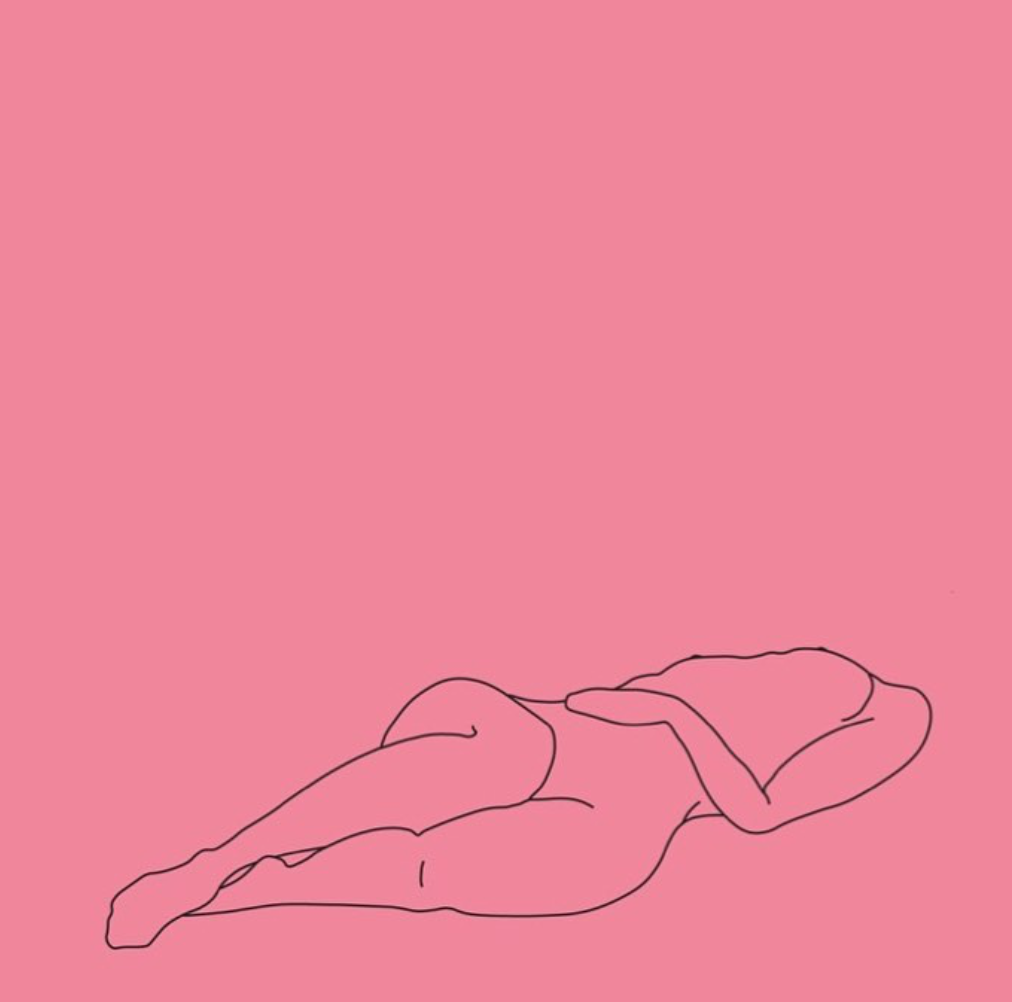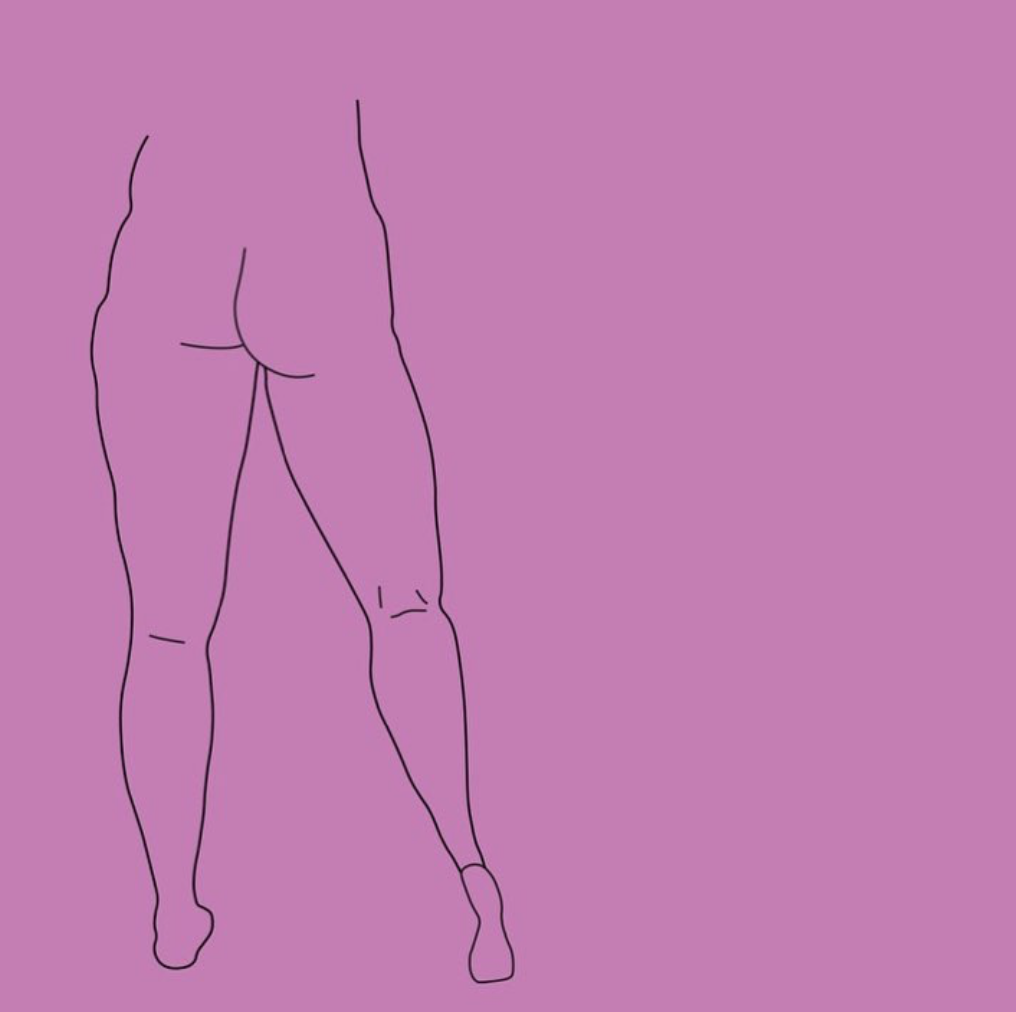For Gut’s Sake, It’s Crohn’s Again: Life With An AutoImmune Disease
Physical and mental health are not mutually exclusive: period.
Words: Magda Lane
“Picture this: it’s day 5 of what will be a 14-day stint in hospital filled with sleepless nights, daily tests, scans and 3am belly injections to stop your blood from clotting. Morning light streams through the dirty window of the hospital as the main room curtains are opened by a nurse, followed by the stained brown ones that provide a thin layer of privacy from the other bed-dwellers around you. You roll onto your side, abdominal still aching from the emergency removal of your appendix. The doctor bursts through and in one breath, bellows: “We know what’s wrong. You have Crohn’s Disease; you will be moved to Ward 6 ASAP” before stumbling back out again. A million questions flooded my mind then, and what shortly followed was a consultation with the nutritionist who made it seem like I’d be living off white bread and tinned apple fruit for the rest of my life!
You may fall into the category of people who have some faint idea of this autoimmune disease, or you might be totally clueless – just like I was. Let me give you a quick 101 on this condition: Crohn’s Disease is a chronic inflammation of the bowel which may affect any part of the digestive tract. People commonly display mild to severe symptoms of abdominal pain, diarrhoea, fever, fatigue, or a reduced appetite/weight loss. At this point, there is no known cure or cause, although some are speculating that there may be some genetic factor involved. At any given time, a Crohn’s sufferer will be in one of two states: either in ‘remission’ (the good type where your stomach decides to play it cool) or as having a ‘flare’ (when Crohn’s decides to wreak havoc on your insides).
It’s common for people to carry the disease for years without knowing about it, and for many it takes an emergency visit to the hospital in intense pain to discover they’re experiencing one of their first ‘flares’. After researching more about my diagnosis, I was dumb founded that I hadn’t taken more concern of the early symptoms I was experiencing. Often, I’d have intense pains during eating and sudden urges to go to the loo, sometimes at the most awkward of times be it during a lecture, in an Uber or out dancing in town - my friends can attest to the inconvenience of this! I had accepted this way of life for years and not once had it occurred to me that this was out of the ordinary.
“What I probably struggled with the most post-hospital, was feeling like I wasn’t able to hit my twenties milestones because I had to make my health number one priority”
However, what was the most surprising about this diagnosis, was just how quickly the mental struggles I had been battling began to disappear once the physical infection I had been harbouring began to mend. The mental side of this story is what I feel the most vulnerable about, since there appeared to be no reason whatsoever as to why I was exhibiting signs of anxiety and depression in the months leading up to my Crohn’s diagnosis. What began as not being able to fall asleep at night, rapidly turned into brain fog when I was at Uni, to having unwanted thoughts and panic attacks with no prior warning. I’d come home crying every evening to whoever was around first; trying to hack my nervous system as to why I was living in a constant state of fear and sadness. Sitting across from a counsellor one evening, desperate for answers, little did I know it was not some deeply buried childhood trauma I had never experienced, but more likely the gut-brain axis causing me grief.
An every-day metaphor for the gut-brain axis in action would be if you’ve ever had that intuitive ‘gut-feeling’ about something. But let the science graduate in me break it down a bit more. According to Healthline, the gut-brain axis is a biochemically interconnected network between the - you guessed it - gut and brain. There are an astonishing 500 million neurons in your gut which have access to your brain through the nervous system via nerves. Bad ‘gut hygiene’ has the potential to create an equally detrimental effect on the brain - so you can imagine what was in store for my mental health when a colonoscopy discovered severe inflammation of my bowel. 95% of our serotonin (the ‘happy hormone’) is located in our gut, so it’s no surprise the gut is often referred to as the ‘second brain’.
This information personally helped me feel so much more in control of my situation because I was able to make a distinct link between the health of my gut and my moods. Whilst no doctor confirmed this for me, it gives me peace of mind knowing that a bad mood may very-well be gut-related, as it is often followed with digesting that avocado toast a little too quickly. It also encourages me to look after my mental health too, because if I allow myself to get overly worked up, there’s a chance I’ll end up with a very sore stomach.
Along with a Crohn’s diagnosis also comes the health-related anxiety, which probably isn’t hugely surprising given the unpredictable onset of a flare. This can then be followed by days in hospital, which is a stress-inducing place to be in anyway. Crohn’s can be particularly stressful for young people, where living up to the standards of ‘YOLO culture’ can be unattainable. Thankfully, this is less of an issue for me now due to the manageability of my condition. But I know that many have to be super cautious with food and alcohol and cannot go out partying or even out for lunch unless they know that there will be a toilet nearby.
“Without my health, I lost my confidence, my sense of humour, my zest for life and even my interest in my own friends and family. Without my health, I wasn’t me”
What I probably struggled with the most post-hospital, was feeling like I wasn’t able to hit my twenties milestones because I had to make my health number one priority. I had about 3 months at home recovering, living in and out of days that seemed to roll on forever compared to the speed at which I was living life just 2 weeks prior. With the change in pace, came the mean girl who’d sit on my shoulder and tell me everything a twenty-something year old SHOULD be doing that I clearly wasn’t. “You should be studying, not watching movies to pass the time.” “You should be out running a marathon, not building muscle back up with gentle yoga”. “You should be out partying, not going to bed at 9pm”. “You should want to talk to your friends, not be afraid that you might just burst out crying”. I eventually realised that not only was I telling myself complete nonsense, but that I was going to have to practice patience and self-care before I was going to get any better.
My dad once said, “without your health, you have nothing” and it took going through this journey first-hand to realise the utter truth of that statement. Without my health, I lost my confidence, my sense of humour, my zest for life and even my interest in my own friends and family. Without my health, I wasn’t me – so rather than follow what I expected of myself, I made a more realistic milestone I’d slowly learn to conquer: to heal, till I finally started feeling whole again. I’ve got a long way to go to achieve ‘ultimate life fulfillment’ but who on earth ever does? And besides, I’m only 22 – I’ve got yonks to figure that one out.
With my two feet firmly back on the ground, I feel it is my responsibility to share my experience with you all. Particularly to those suffering an invisible illness, this piece is for you. I see you; I empathise with your unique struggles and I hope you are keeping well – particularly during these trying times of a global pandemic. What I have not yet mentioned, but was critical to my healing process, was the social support I so fortunately was able to rely on. If you’re lucky enough to have a supportive family, don’t be afraid to lean on then – they love you unconditionally and you would do the same for them as they’d do for you. Your friends chose you because you are so wonderfully YOU – pick up the phone and have a fat cry, they only want to make you feel better. If you’re lying lonely in a hospital bed, talk to the wonderful nurses looking after you – social interaction will make a horrible situation so much more bearable. And lastly, reach out to other sufferers of your condition – we live in a time where you can instantly feel less alone at the click of a button, and there is nothing more reassuring than realising there is an entire community in the same boat as you are.
To anyone feeling betrayed by their bodies, like they can’t rely on their physical or mental health to pull themselves out of darkness, I urge you to whisper this to yourself with a quiet knowledge:
“I am smarter and stronger than I am capable of believing right now, but someday I will realise my full potential – and I hope that day comes soon”.
-
If you resonate with Magda and her experience and would like to get in touch you can reach her via the following email address: magda.lane246@gmail.com.





